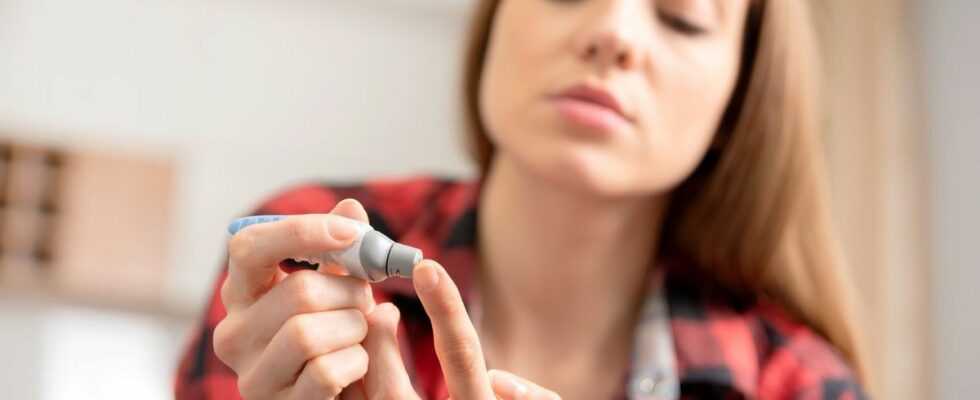Published on
updated on
Reading 1 min.
Diabetes continues to progress in France, where nearly 6% of the population receives drug treatment against the disease, and its most acute form is increasing among young people under 20, according to data published by Public Health France.
“In 2023, diabetes (all types combined) continued to increase“, indicated the health agency on the occasion of World Diabetes Day, emphasizing that more than 3.8 million people were being treated with medication for diabetes, or 5.6% of the population.
For this pathology, “territorial disparities remain very marked with a much higher frequency of diabetes in the overseas departments and regions and in Seine-Saint-Denis“, according to this annual report.
In contrast, the departments located in the West, particularly in Brittany, record the lowest frequencies.
There are two forms of diabetes. Type 2, which represents 90% of cases, affects older patients, who become less responsive to insulin. Rarer but more acute, type 1, due to an insulin deficiency, necessarily requires insulin therapy.
And “the number of people living with type 1 diabetes among those under 20 is increasing every year“: it thus increased from 20,300 in 2012 to 31,400 in 2023, observes Public Health France, insisting on the fastest possible diagnosis to avoid serious complications, which can go as far as coma.
This autoimmune disease, which usually appears in childhood or adolescence, “is linked to many factors, both genetic and environmental“, notes the agency.
Overall, hospitalizations for chronic complications linked to diabetes, particularly foot and cardio or neurovascular complications, remained very frequent in 2023.
The frequency of diabetes has doubled worldwide over the past thirty years, a trend which primarily affects less wealthy countries, according to a study published Wednesday in the Lancet.
Médecins Sans Frontières (MSF) on Wednesday once again called on the pharmaceutical groups Eli Lilly, Novo Nordisk, Sanofi and all insulin manufacturers to “take urgent action to improve access to diabetes medical tools in low- and middle-income countries by immediately making insulin injector pens available at US$1 (€0.94) each“.
